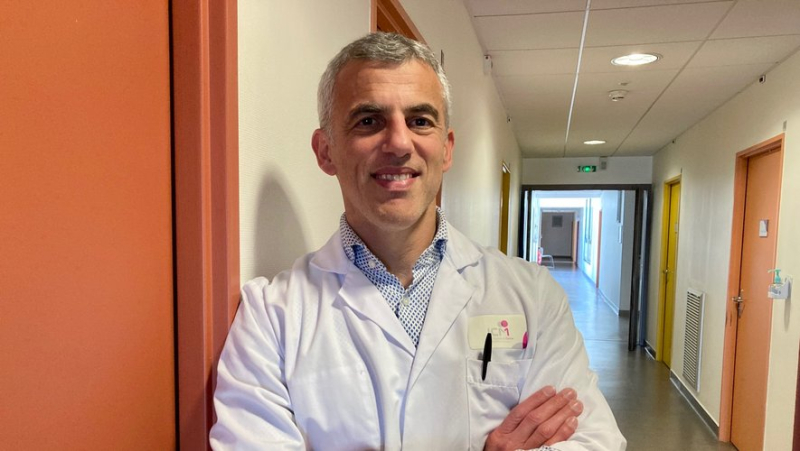“We die much less from cancer”: the expert analysis of Sébastien Carrère, surgical oncologist at the Montpellier Cancer Institute

Sébastien Carrère, surgical oncologist at the Montpellier Cancer Institute (ICM), president of the Establishment Medical Community. L. ZENON – FREE NOON
In France, cancers represent the leading cause of mortality with 157,400 deaths in 2018 according to Public Health France. Those under 50 are not spared. Sébastien Carrère, surgical oncologist at the Montpellier Cancer Institute (ICM) shares this observation.
Do you notice, at the ICM in Montpellier, that people under 50 are increasingly affected by cancer ?
Yes, and it affects several types of tumors. There are more breast cancers, more digestive cancers, particularly of the pancreas where the incidence has increased enormously over the last 20 years, with a catastrophic vital prognosis. There are also more lung cancers, particularly in women, as a result of smoking.
Do you pay special attention to young people affected by cancer ?
Quite. Younger people are less prepared for the disease, it is more difficult for them to manage. We have reinforced psychological support for 20-30 year olds in particular. There is even a structure that exists at the European level, the AJA, for "Adolescents Young Adults" declined at the regional level, in Languedoc-Roussillon. This is a mobile team which will take charge of the psychological dimension, integration into society, in studies…hellip; 15 to 25 year olds. Young patients from the Occitanie Est region often come to us because we are a referral center.
Does the disease have different effects when you are young ?
Often, in young people, the disease is very aggressive and they must be started on treatment very early because the progression is rapid. Once the diagnosis is made and additional examinations carried out, we start quickly, sometimes in less than 3 weeks. The question of fertility often comes up among young people.
Is there any support?
A large part of anti-cancer treatments can indeed impact fertility. We organized ourselves and worked with the team at the University Hospital which has a unit dedicated to the management of fertility problems in oncology. Egg donations, sperm samples, this team is very responsive.
How do you explain this increase in cancers?
I think it’s really the environmental factor that plays a role. Except for the pancreas, we cannot explain it. Some pancreatic cancers come from excessive alcohol consumption, but this is a small proportion which does not explain the outbreak of this cancer. For others, it’s very difficult to identify. Is it the pesticides, the food ? We don't know. For gynecological cancers, we have in mind the hormonal factor with the pill, even if this is not proven. In short, we have not seen any change in behavior that could explain this increase in the number of cancers in the population.
Why is the age of screening so late, most often from age 50 ?
There is mass screening and individual screening. For families or risky behaviors, individually, we will do examinations earlier. It is not uncommon when there is a risk factor in a patient. For mass screening, we think in terms of public health. This has a cost and there must be a direct survival benefit for the general population. If this is not the case, it is not implemented.
Are the survival prognoses better, overall ?
Many fewer people die from cancer than 10 years ago. The world of oncology has progressed enormously. There are new treatments, better overall care, better treatment strategies. For melanoma, for example, the prognosis has completely changed since we saw that immunotherapies, these new anti-cancer treatments, are very effective. Before, with metastatic melanoma, we could hope to live a year, 2 years, now, we are able to keep patients for several years and some are even in complete remission. There are quite a few new avenues of research, with targeted therapies. Molecules, which are antibodies, will target a marker of a particular type of cancer and make it possible to offer targeted treatment.
I subscribe to read more




